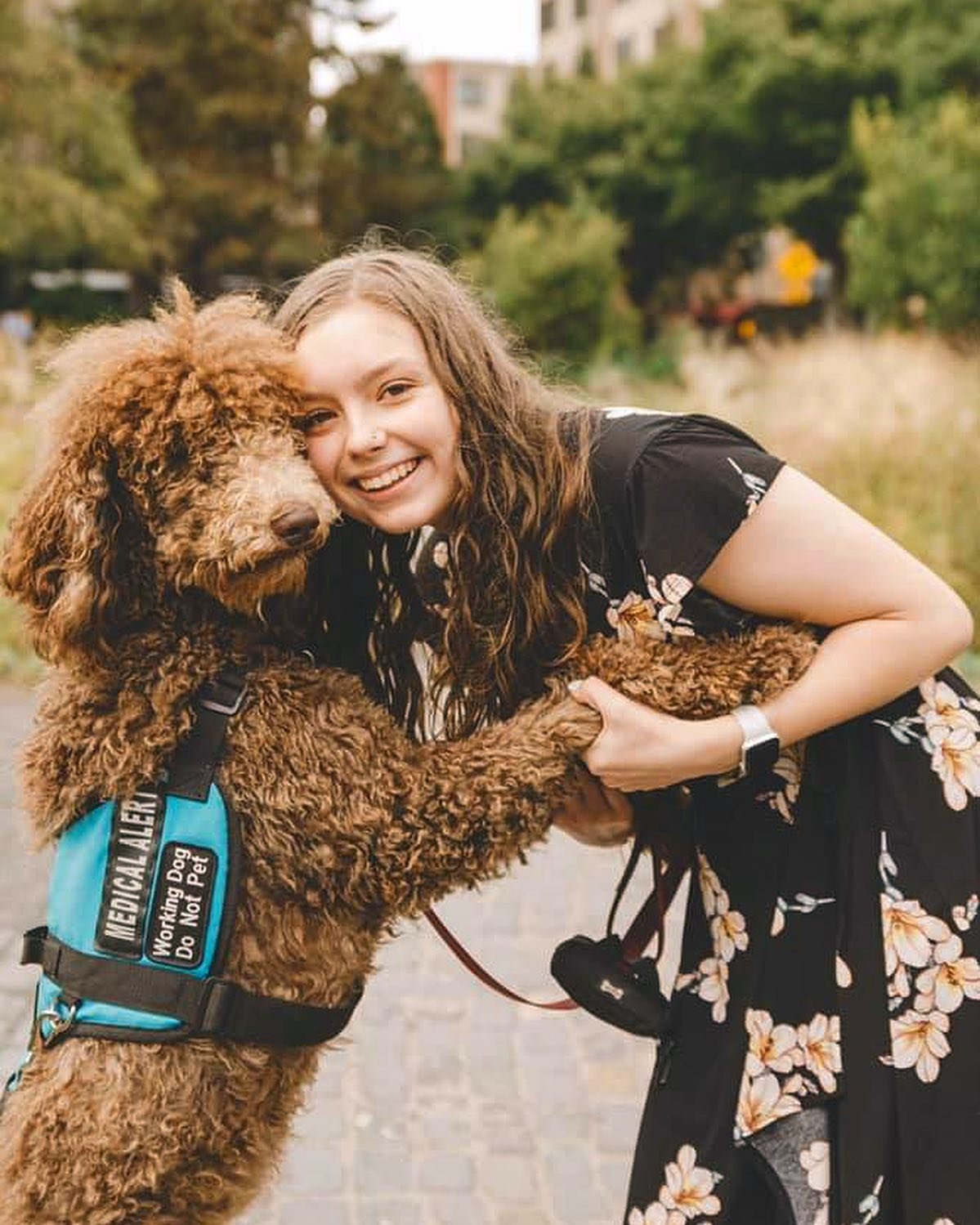Why Allowing Service Dogs at Colleges is So Important
A Black Poodle Service Dog with a Female Handler (Courtesy: MobilityDog.org)
A Beautiful, Trained Mobility Service Dog (Courtesy: MobilityDog.org)
college: indepence and growth
College is a time of immense growth and exploration and navigating the academic landscape and social scene can be challenging yet rewarding for each student. But for students with disabilities, navigating campus life can present unique challenges. However, the presence of service dogs can make a profound difference in terms of:
Accessibility and freedom.
Fostering a sense of inclusivity and belonging.
Social interaction and emotional support for handlers inside the college community.
Service Dogs: ADA Mandates
Since 1990, the Americans with Disabilities Act (ADA) legally allows individuals with disabilities the right to bring their service animals into public spaces, including colleges and universities. By welcoming service dogs into classrooms, dormitories, libraries, and other campus facilities, colleges can ensure that students with disabilities have equal access to education and campus life.
Service dogs are specially trained to perform tasks that assist individuals with disabilities. These highly trained animals are not pets; they are essential companions that enable their handlers to navigate the world with greater independence, confidence and quality of life.
Recently, there has been a growing recognition of the importance of accommodating service dogs in higher education settings. Many colleges and universities have updated their policies and practices to ensure that students with disabilities can bring their service animals to campus without unnecessary barriers or discrimination. Additionally, advocacy groups and disability rights organizations continue to work towards raising awareness and promoting greater accessibility in all aspects of college life.
Accessibility and Inclusion
Doodle Medical Alert Service Dog with a Young Woman (Courtesy: MobilityDog.org)
The presence of service dogs in college also contributes to the broader conversation about accessibility and inclusion. For many individuals with disabilities, attending college is not just about earning a degree but also about participating fully in campus life and feeling like valued members of the community. Service dogs play a crucial role in facilitating this sense of belonging by providing assistance and support that enables their handlers to engage more fully with academic and extracurricular activities.
The presence of service dogs on college campuses helps to challenge stereotypes and misconceptions about disability by showcasing the capabilities and contributions of individuals with disabilities.
Allowing service dogs on college campuses in classrooms, dormitories, and other campus spaces actively promotes:
Awareness and acceptance of disability rights and accommodations.
Precedents for more accessible and equitable learning environments for all students.
Diversity that enriches the educational experience and benefits the entire community.
Individuals with disabilities are valued members of the community who deserve equal opportunities and respect.
A more inclusive and understanding society.
A Trained Mobility Service Dog (Courtesy: MobilityDog.org)
Social Interaction and Emotional Support
Beyond their practical assistance, service dogs also play a crucial role in promoting social inclusion and emotional support on college campuses. Students with disabilities may face social isolation and stigma, but the presence of a service dog can serve as a conversation starter and icebreaker, facilitating social interactions and reducing feelings of loneliness. Additionally, the bond between a handler and their service dog provides emotional comfort and companionship, helping to alleviate stress and anxiety associated with academic challenges and campus life.
Research has shown the presence of service dogs can have positive psychological effects on individuals with disabilities, including increased self-esteem, confidence, and overall well-being. A study published in the Journal of Rehabilitation Research & Development highlighted the therapeutic benefits of canine companionship.
In conclusion, service dogs on college campuses are essential for fostering accessibility, safety, and inclusivity. These highly trained animals provide practical assistance to their handlers and emotional support and social connection. By embracing the presence of service dogs, colleges can break down barriers, foster inclusivity and accessibility and create a more welcoming and supportive environment where all students can thrive, contribute and ultimately succeed!





